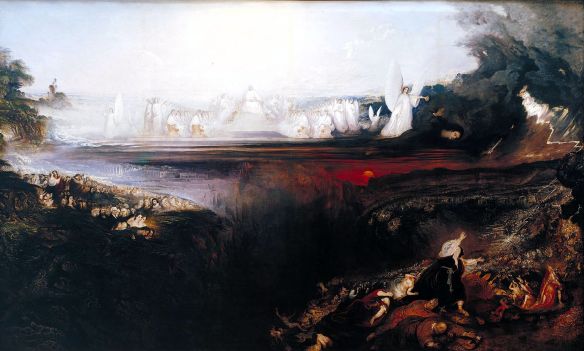Earlier this year, when discussing the topic of envy, we considered the brothers, Cain and Abel. Let’s see what else we can learn from both their lives and Abel’s death:
And Abel also brought of the firstborn of his flock and of their fat portions. And the Lord had regard for Abel and his offering. Genesis 4:4 English Standard Version (ESV)
John Calvin analyzes this situation:
And the Lord had respect unto Abel, etc. …Notice the order Moses [observes]; for he does not simply state that the worship which Abel had paid was pleasing to God, but he begins with the person of the offeror; by which he signifies, that God will regard no works with favor except those the doer of which is already previously accepted and approved by him.
And no wonder; for man sees things which are apparent, but God looks into the heart, (1 Samuel 16:7) therefore, he estimates works no otherwise than as they proceed from the fountain of the heart.
Whence also it [follows], that he not only rejects but abhors the sacrifices of the wicked, however splendid they may appear in the eyes of men. For if he, who is polluted in his soul, by his mere touch contaminates, with his own impurities, things otherwise pure and clean, how can that but be impure which proceeds from himself?
…Now seeing that in another place, the Spirit testifies, by the mouth of Peter, that ‘hearts are purified by faith,’ (Acts 15:9) and seeing that the purity of the holy patriarchs was of the very same kind, the apostle does not in vain infer, that the offering of Abel was, by faith, more excellent than that of Cain.
Calvin then draws two conclusions with consequences. The first conclusion and consequence are:
Therefore, in the first place, we must hold, that all works done before faith, whatever splendor of righteousness may appear in them, were nothing but mere sins, being defiled from their roots, and were offensive to the Lord, whom nothing can please without inward purity of heart.
I wish they who imagine that men, by their own motion of freewill, are rendered [fit] to receive the grace of God, would reflect on this. Certainly, no controversy would then remain on the question, whether God justifies men gratuitously, and that by faith? For this must be received as a settled point, that, in the judgment of God, no respect is had to works until man is received into [his] favor.
And the second conclusion is harder still:
…Since the whole human race is hateful to God, there is no other way of reconciliation to divine favor than through faith. Moreover, since faith is a gratuitous gift of God, and a special illumination of the Spirit, then it is easy to infer, that we are [enabled to life] by his mere grace, just as if he had raised us from the dead.
In which sense also Peter says, that it is God who purifies the hearts by faith. For there would be no agreement of the fact with the statement, unless God had so formed faith in the hearts of men that it might be truly deemed his gift…
Calvin’s observations remind us of the apostle Paul’s words in his letter to the Ephesian church:
For by grace you have been saved through faith. And this is not your own doing; it is the gift of God, not a result of works, so that no one may boast. For we are his workmanship, created in Christ Jesus for good works, which God prepared beforehand, that we should walk in them. Ephesians 2:8-10 (ESV)
By faith Abel offered to God a more acceptable sacrifice and through his faith, though he died, he still speaks. Receive from the Lord Jesus Christ a new heart. May He renew a right spirit within you.
Andrew Murray – Faith – Abel – The Sacrifice Of Faith – The Holiest of All (99 of 130), Christian Praise and Worship in Songs, Sermons, and Audio Books




